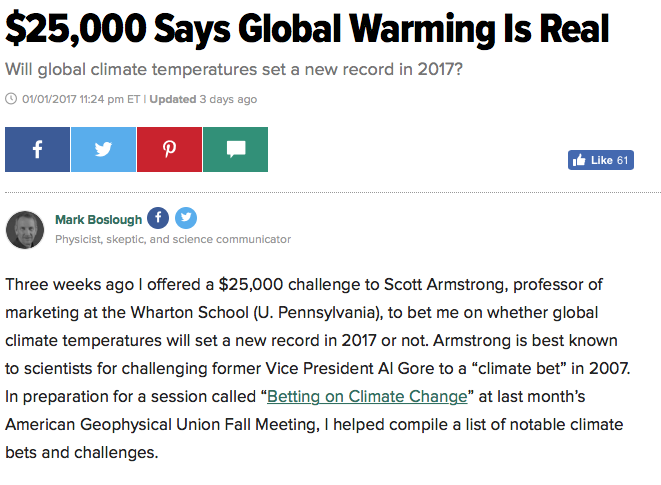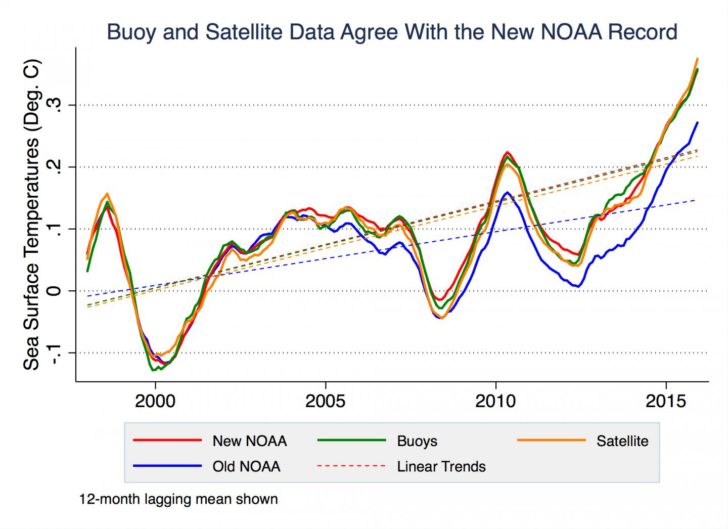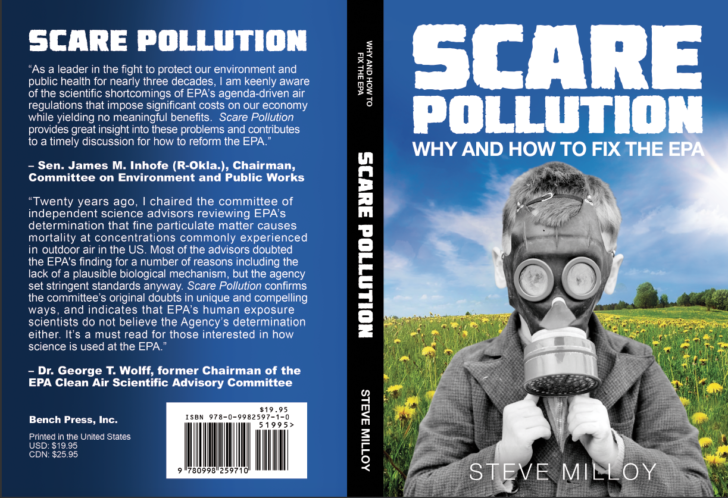I have always found advocates of climate bedwetting to be slippery. See what you think.
 Continue reading Can you trust the guy offering $25,000 for proof global warming is real?
Continue reading Can you trust the guy offering $25,000 for proof global warming is real?
I have always found advocates of climate bedwetting to be slippery. See what you think.
 Continue reading Can you trust the guy offering $25,000 for proof global warming is real?
Continue reading Can you trust the guy offering $25,000 for proof global warming is real?
Ridiculous for several reasons.

Continue reading Claim: Pollutants in the Arctic environment are threatening polar bear health
So become a communist while supplies last.

Continue reading Claim: Atlantic current could collapse in… 350 years
As NOAA knows, any conclusion you want is possible when you adjust the data to suit.

Continue reading Claim: ‘Global warming hiatus disproved — again’
So more ‘settled’ hurricane science — ‘Active Atlantic hurricane periods, like the one we are in now, are not necessarily a harbinger of more, rapidly intensifying hurricanes along the U.S. coast…’

That is the bottom line of a study reporting that we can have a lot of hurricanes or intense hurricanes — but not a lot of intense hurricanes. And no one knows what effect (if any) warming might have.

Continue reading NOAA admits: Can’t predict hurricane frequency or intensification in warmer climate
What is someone threw a scare but the damage didn’t really show up?

Continue reading Cost of climate change in Alaska is… negligible
From the Daily Caller about Steve Milloy’s new book: Scare Pollution: Why and How to Fix the EPA — which is the #1 book in Amazon.com’s Public Affairs & Administration category.

Continue reading New Book Exposes How EPA Distorts Science To Fit Its Political Goals
The DC Court of Appeals rules that NRO did not hurt Michael Mann-child’s feelings all that much.
But Michael Mann v. Free Speech remains alive against Mark Steyn and CEI/Rand Simberg.

Continue reading Court dismisses Michael Mann defamation lawsuit against National Review
Available on Kindle NOW… print edition coming! The full story of the scientific fraud underlying EPA’s war on coal and climate rules. My proof that particulate matter kills no one. Endorsed by Sen. Jim Inhofe and the former chairman of EPA’s own Clean Air Scientific Advisory Committee, George Wolff.
Continue reading New Book by Steve Milloy: ‘Scare Pollution: Why and How to Fix the EPA’
This study is a weiner — and not the good kind.

Odd… an accompanying editorial criticizes not the study’s science… but the funding of the study.

Continue reading Study: Daily sugar intake guidelines are based on low quality evidence